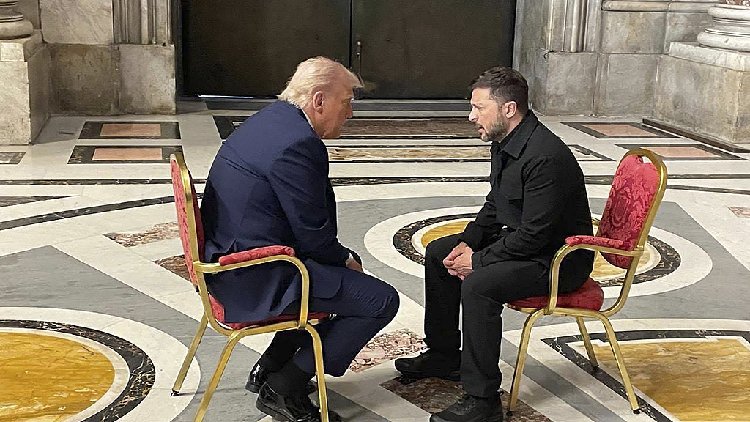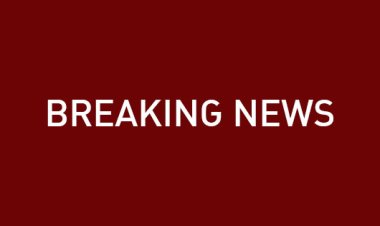Could Direct Negotiations Between Russia and Ukraine Happen Soon?
On Saturday, encouraging signals emerged from both the Kremlin and Kyiv regarding the ongoing conflict between Russia and Ukraine. The Kremlin revealed that Russian President Vladimir Putin is prepared to engage in direct negotiations with...

Kremlin spokesperson Dmitry Peskov informed journalists, "During yesterday's talks with Trump’s envoy Witkoff, Vladimir Putin confirmed that the Russian side is ready to resume the negotiation process with Ukraine without preconditions."
On the same day, Ukrainian President Volodymyr Zelenskyy had a one-on-one meeting with Trump at the Vatican during Pope Francis's funeral, marking their first face-to-face encounter since a tense Oval Office meeting in February.
The two leaders, seated closely together without aides present, discussed matters for around 15 minutes. The White House characterized their conversation as "very productive," with further details anticipated.
Zelenskyy later shared on social media platform Telegram that their talks focused on "the protection of the lives of our people. A complete and unconditional ceasefire. A reliable and lasting peace that will prevent a recurrence of war." He remarked, "It was a very symbolic meeting that has the potential to become historic if we achieve joint results."
Zelenskyy also met with French President Macron, UK Prime Minister Keir Starmer, and Italian Prime Minister Giorgia Meloni during the funeral.
Following their discussions, Macron stated, "Ukraine is ready for an unconditional ceasefire and wishes to work alongside the Americans and the Europeans to make it happen." He added that Putin must now demonstrate whether he is genuinely prepared to pursue peace.
Zelenskyy underscored that "An unconditional ceasefire must be in the sky, at sea, and on land, and become the first step towards establishing a just peace with reliable security guarantees."
These positive developments from both Russia and Ukraine arise after Trump issued a warning that he might withdraw from peace negotiations if an agreement is not reached soon. Nonetheless, considerable discrepancies persist among the positions of the Trump administration, Ukraine, and its European allies.
Reports from the Russia-U.S. talks obtained by Reuters indicate that Washington is advocating for the legal recognition of Russia's control over Crimea and the de facto acknowledgment of Russian-occupied regions in southern and eastern Ukraine.
In contrast, Europe and Ukraine prefer to postpone discussions about territorial matters until after a ceasefire and have made no moves to recognize Russian control over any Ukrainian territory.
Zelenskyy has openly rejected the notion of acknowledging Crimea as part of Russia, asserting that doing so would contravene Ukraine's Constitution.
Additionally, there are notable differences regarding the timeline for lifting sanctions on Russia if a peace agreement is finalized, the type of security guarantees Ukraine would receive, and the means of financial compensation for Ukraine.
Thomas Evans for TROIB News












